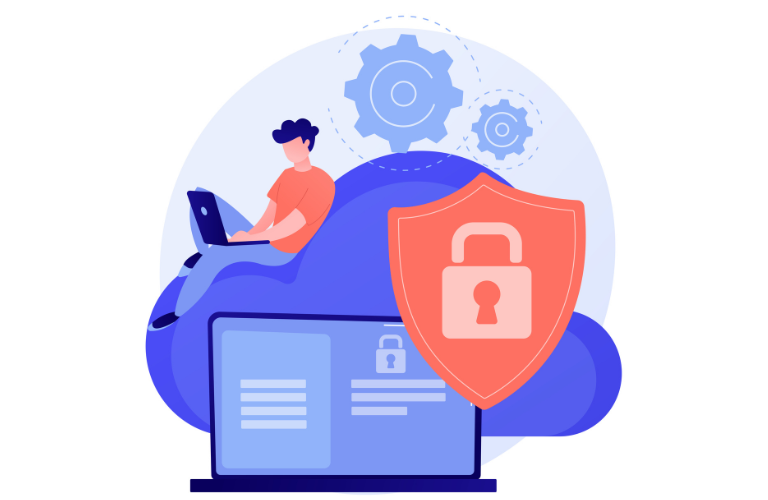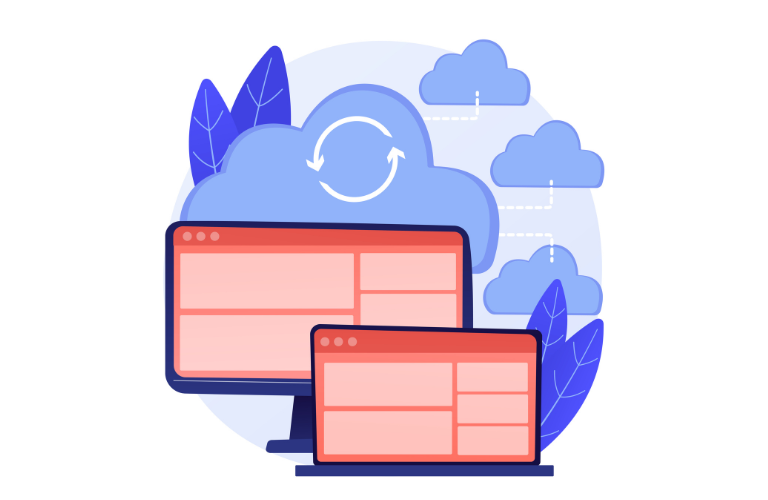In 2025, Ubuntu container security serverless PHP is critical for developers aiming to deploy scalable, secure PHP applications in cloud-native environments. Containers and serverless architectures, such as those powered by Ubuntu and AWS Lambda, provide flexibility and efficiency but introduce unique security challenges.
This article explores actionable best practices to protect serverless PHP applications running in Ubuntu containers, leveraging modern tools, Kubernetes policies, and automated secrets management. Whether you’re addressing vulnerabilities, optimizing performance, or ensuring compliance, these strategies will help you safeguard your workloads effectively.
Table of Contents
Why Ubuntu for Serverless PHP?
Ubuntu is a trusted choice for containerized and serverless PHP deployments due to its robust security updates, extensive community support, and compatibility with tools like Docker and Kubernetes. Its long-term support (LTS) releases, offering up to 12 years of updates, ensure stability for production environments. When paired with serverless PHP frameworks like Bref, Ubuntu provides a lightweight, secure foundation for running PHP code on-demand in platforms like AWS Lambda.
Securing Ubuntu Containers for PHP
Containers isolate PHP applications, reducing risks by limiting their access to the host system. However, misconfigurations can expose vulnerabilities. Here’s how to secure Ubuntu containers for PHP applications:
- Use Trusted Base Images: Always start with official Ubuntu images from Docker Hub or Canonical’s registry. These images are regularly patched to address known vulnerabilities. For PHP, use official PHP images layered on Ubuntu for compatibility and security.
- Run as Non-Root: Configure containers to run PHP processes as non-root users. In Docker, add USER nobody in your Dockerfile. In Kubernetes, set securityContext.runAsUser to a high UID (e.g., 1000) to limit privileges.
- Minimize Attack Surface: Remove unused packages and dependencies. For example, a minimal Ubuntu image reduces bloat and potential vulnerabilities. Use commands like apt-get remove to strip unnecessary tools.
Example Dockerfile for Secure PHP:
FROM php:8.2-fpm
RUN apt-get update && apt-get install -y --no-install-recommends \
&& apt-get clean \
&& rm -rf /var/lib/apt/lists/*
USER nobody
WORKDIR /var/www/html
COPY . .
EXPOSE 9000
CMD ["php-fpm"]This Dockerfile uses an official PHP image, removes unnecessary packages, and runs as a non-root user, aligning with Ubuntu container security serverless PHP best practices.
Vulnerability Scanning for Containers
Regular scanning catches vulnerabilities before they’re exploited. Tools like Clair and Trivy integrate seamlessly with Ubuntu containers:
- Clair: An open-source tool for static analysis of container images. Run clair-scanner against your Ubuntu PHP images to identify CVEs (Common Vulnerabilities and Exposures).
- Trivy: Lightweight and fast, Trivy scans for vulnerabilities in both OS and application dependencies. Use trivy image php:8.2-fpm to scan your PHP image.
Implementation Tip: Automate scanning in CI/CD pipelines using GitHub Actions or GitLab CI. For example, add a Trivy step to your pipeline:
name: Scan Image
on: [push]
jobs:
scan:
runs-on: ubuntu-latest
steps:
- uses: actions/checkout@v3
- name: Scan with Trivy
run: trivy image my-php-app:latestThis ensures vulnerabilities are caught early, saving time and reducing risks in Ubuntu container security serverless PHP deployments.
Kubernetes Security Policies for PHP
Kubernetes enhances container orchestration but requires strict policies to secure PHP applications:
- Security Contexts: Use Kubernetes securityContext to enforce non-root execution and drop capabilities. Example pod spec:
apiVersion: v1
kind: Pod
metadata:
name: php-pod
spec:
containers:
- name: php
image: php:8.2-fpm
securityContext:
runAsUser: 1000
runAsNonRoot: true
capabilities:
drop: ["ALL"]- Network Policies: Limit container communication. For example, block ingress traffic except for required ports (e.g., 9000 for PHP-FPM).
- Pod Security Standards: Enforce restricted Pod Security Admission policies to prevent privilege escalation.
These policies align with Ubuntu container security serverless PHP principles, ensuring robust protection.
Serverless PHP: How It Works
Serverless PHP, often deployed via Bref on AWS Lambda, runs PHP code in ephemeral containers without managing servers. When an HTTP request or event triggers a function, the cloud provider spins up a container (often Ubuntu-based), executes the code, and terminates it. This model scales automatically but requires careful security configuration.
Securing Serverless PHP Deployments
Serverless environments shift some security responsibilities to the cloud provider, but application-level security remains critical:
- Secure Base Images: Use Bref’s pre-built Ubuntu-based images for AWS Lambda. These are optimized for PHP and include security patches.
- Least Privilege Access: Configure AWS IAM roles with minimal permissions. For example, grant Lambda functions only the necessary S3 or DynamoDB access.
- Secrets Management: Avoid hardcoding secrets. Use AWS Secrets Manager or Parameter Store. Example command to retrieve a secret in PHP:
use Aws\SecretsManager\SecretsManagerClient;
$client = new SecretsManagerClient(['region' => 'us-east-1']);
$secret = $client->getSecretValue(['SecretId' => 'my-php-secret'])['SecretString'];- Ephemeral Storage: Since serverless containers are short-lived, avoid storing sensitive data in /tmp. Stream logs to AWS CloudWatch for monitoring.
Automating Secrets Management
Automated secrets management reduces human error and enhances Ubuntu container security serverless PHP deployments:
- AWS Secrets Manager: Store database credentials or API keys securely. Rotate secrets automatically using AWS Lambda functions.
- Vault by HashiCorp: For multi-cloud setups, use Vault to manage secrets dynamically. Integrate with Kubernetes using the Vault sidecar injector.
Example: Vault Integration in Kubernetes:
apiVersion: v1
kind: Pod
metadata:
name: php-vault-pod
annotations:
vault.hashicorp.com/agent-inject: "true"
vault.hashicorp.com/role: "php-app"
spec:
containers:
- name: php
image: php:8.2-fpmThis setup injects secrets into your PHP container securely, streamlining secret management.
Runtime Controls for Enhanced Security
Monitor containers and serverless functions at runtime to detect anomalies:
- Falco: An open-source tool for runtime security. It monitors system calls and alerts on suspicious activity, like unauthorized file access in a PHP container.
- CloudWatch: For serverless PHP, use AWS CloudWatch to monitor Lambda function logs. Set alarms for unusual invocation patterns.
- Audit Logs: Regularly audit Kubernetes and AWS logs for privilege escalations or misconfigurations.
Real-World Use Case: E-Commerce PHP App
Consider an e-commerce platform running a PHP app on Ubuntu containers in Kubernetes, with serverless functions for payment processing. To secure it:
- Use a minimal Ubuntu-based PHP image scanned with Trivy.
- Deploy in Kubernetes with a restricted securityContext and network policies.
- Offload payment processing to a Bref-based Lambda function, using Secrets Manager for API keys.
- Stream all logs to CloudWatch and monitor with Falco for real-time threat detection.
This setup ensures Ubuntu container security serverless PHP principles are met, protecting user data and maintaining performance.
Performance Optimization Tips
Security shouldn’t compromise performance. Optimize your PHP containers and serverless functions:
- Minimize Image Size: Use multi-stage builds in Docker to reduce image size. Example:
FROM php:8.2-fpm AS builder
COPY . /app
RUN composer install --no-dev
FROM php:8.2-fpm
COPY --from=builder /app /var/www/html
USER nobody
CMD ["php-fpm"]- Caching: Use AWS Lambda’s provisioned concurrency to reduce cold start times for serverless PHP.
- Resource Limits: Set CPU and memory limits in Kubernetes to prevent resource exhaustion.
Tools and Resources for 2025
- Bref: Simplifies serverless PHP on AWS Lambda with Ubuntu-based images. Learn more at Bref.sh.
- Zend PHP Images: Hardened PHP images for Ubuntu containers. Explore at Zend.com.
- Canonical’s Ubuntu Pro: Offers extended security updates and compliance features. Visit xAI’s Grok documentation for integration tips.
- Kubernetes Documentation: Official guides for security contexts and network policies. See Kubernetes.io.
Time-Saving Shortcuts
- Automate Updates: Use unattended-upgrades in Ubuntu containers for automatic security patches: apt-get install unattended-upgrades.
- Prebuilt Images: Leverage Bref’s prebuilt Lambda layers to skip manual PHP configuration.
- CI/CD Templates: Use GitHub Actions templates for Trivy scanning to save setup time.
Conclusion
Securing Ubuntu container security serverless PHP applications in 2025 requires a multi-layered approach. By using trusted Ubuntu images, implementing vulnerability scanning with tools like Trivy, enforcing Kubernetes security policies, and automating secrets management, developers can protect their PHP workloads effectively. Combine these with runtime monitoring and performance optimization for a robust, scalable deployment. Stay proactive with updates and leverage tools like Bref and AWS Secrets Manager to streamline security, ensuring your PHP applications thrive in a cloud-native world.
FAQs
1. What is Ubuntu container security serverless PHP?
Ubuntu container security serverless PHP refers to securing PHP applications running in Ubuntu-based containers or serverless environments, like AWS Lambda. It involves using trusted Ubuntu images, vulnerability scanning, non-root execution, and tools like Kubernetes and Bref to protect workloads while ensuring scalability.
2. How do I secure a PHP application in an Ubuntu container?
To secure a PHP app in an Ubuntu container:
- Use official Ubuntu PHP images from Docker Hub.
- Run as a non-root user with USER nobody in your Dockerfile.
- Scan images with tools like Trivy (trivy image php:8.2-fpm).
- Remove unused packages using apt-get remove.
- Apply Kubernetes security contexts to limit privileges.
3. Why use Ubuntu for serverless PHP deployments?
Ubuntu is ideal for serverless PHP due to its long-term support (up to 12 years), regular security patches, and compatibility with tools like Bref for AWS Lambda. Its minimal images reduce vulnerabilities, making it a secure base for Ubuntu container security serverless PHP setups.
4. What tools can I use for vulnerability scanning in Ubuntu containers?
Popular tools include:
- Trivy: Lightweight, scans OS and PHP dependencies (trivy image my-php-app:latest).
- Clair: Open-source, identifies CVEs in container images.
Integrate these into CI/CD pipelines (e.g., GitHub Actions) for automated scanning to ensure Ubuntu container security serverless PHP compliance.
5. How can I manage secrets securely in serverless PHP?
Avoid hardcoding secrets. Use:
- AWS Secrets Manager: Store and rotate credentials securely. Access via PHP with SecretsManagerClient.
- HashiCorp Vault: Inject secrets into Kubernetes pods using annotations like vault.hashicorp.com/agent-inject.
These tools enhance Ubuntu container security serverless PHP by reducing exposure risks.
6. How do I optimize performance for PHP in Ubuntu containers?
To optimize:
- Use multi-stage Docker builds to minimize image size.
- Set Kubernetes resource limits (CPU/memory) to prevent exhaustion.
- For serverless PHP, enable AWS Lambda provisioned concurrency to reduce cold starts.
These steps balance performance with Ubuntu container security serverless PHP best practices.
7. What are the benefits of using Bref for serverless PHP on Ubuntu?
Bref simplifies serverless PHP on AWS Lambda by providing prebuilt Ubuntu-based images, automated scaling, and secure defaults. It supports HTTP and event-driven workloads, streamlining deployment while maintaining Ubuntu container security serverless PHP standards.




